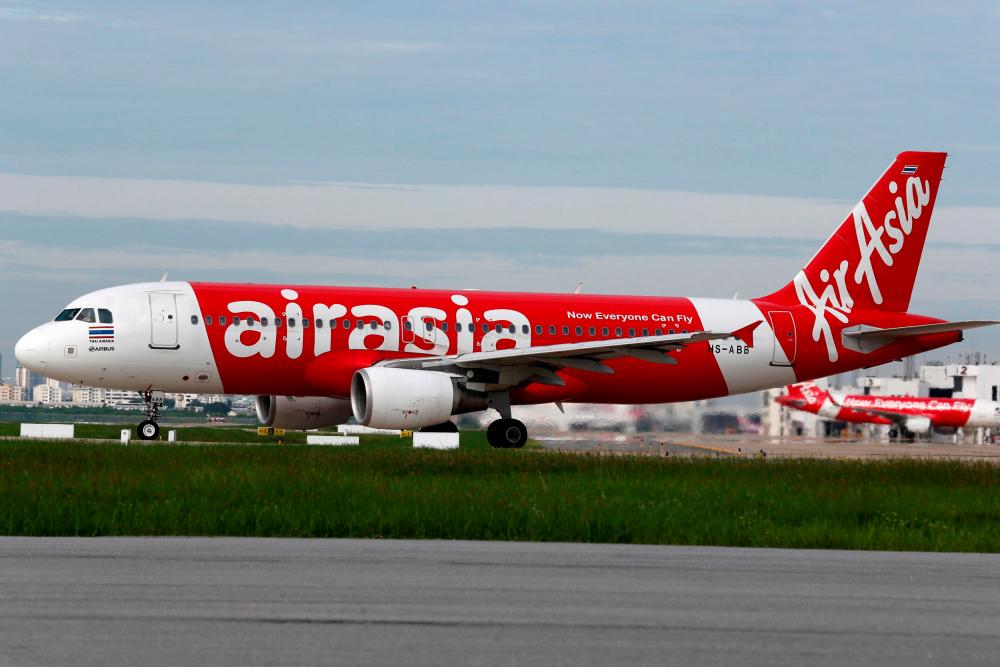PETALING JAYA: AirAsia Group Bhd has triggered Practice Note 17 (PN17) criteria of the Main Market Listing Requirements (LR) of Bursa Malaysia Securities after the airline’s external auditor Messrs Ernst & Young PLT issued an unqualified audit opinion on material uncertainty relating to going concern on Tuesday, but has been saved from slipping into PN17 status thanks to Bursa Malaysia Securities’ PN17 relief measures.
Bursa Malaysia Securities has granted PN17 relief measures for the suspended criteria from April 17, 2020 to June 30, 2021 to companies. Thus, AirAsia will not be classified as a PN17 company.
“The relief measures as per Bursa Malaysia ‘s letter hereby apply. For the avoidance of doubt, AirAsia will not be classified as a PN17-listed issuer and will not be required to comply with the obligations pursuant to Paragraph 8.04 and PN17 of the Main LR for a period of 12 months.
“AirAsia will reassess its condition and announce whether it continues to trigger any of the criteria in PN17 of the Main LR upon the expiry of the 12 months,“ AirAsia said in a stock exchange filing today.
The unqualified audit opinion was issued in respect of AirAsia’s audited financial statements for FY19 ended Dec 31, and AirAsia’s shareholders’ equity on a consolidated basis is 50% or less of its share capital (excluding treasury shares). AirAsia’s shareholders’ equity on a consolidated basis as at March 31 is 37% of its share capital (excluding treasury shares).
In a note, AmInvestment Bank Research pointed out that as the clock is ticking, AirAsia may not be in the most favourable position when it comes to negotiating with potential new investors.
Similarly, given the depressed share price, a rights issue or private placement could be highly dilutive to existing shareholders. As at March 31, AirAsia had net cash of RM1 billion and shareholders’ fund of RM1.1 billion against total lease liabilities of RM12.2 billion.
The research house is maintaining its view that while the recovery in the air travel industry will be bumpy given the uncertainties surrounding the reopening of borders and urgent need for airlines to recapitalise their balance sheets, it believes the pandemic has thrown a spanner in the works for AirAsia to aggressively grow its top line.
“We are mindful of a potential steep downwards adjustment to AirAsia’s share price in the event of a highly dilutive equity-raising exercise. We maintain our sell recommendation, forecasts and fair value of 41 sen based on 6.5x
FY21F EPS, at a 50% discount to its global peers (Ryanair and Southwest Airlines) to reflect AirAsia’s relatively smaller size,” it said.
In a separate filing, the airline’s Q1’20 results have been amended to update Note 3, which states the emphasis of matter by independent auditors.
“We draw attention to Note 2.1 and Note 48 to the financial statements, which indicate that the group has a net loss of RM283 million for the financial year ended Dec 31, 2019 and the current liabilities exceeded its current assets by RM1.84 billion. Further, in early 2020, the global economy, in particular the commercial airlines industry, faces uncertainty as a result of the unprecedented Covid-19 pandemic. The travel and border restrictions implemented by countries around the world has led to a significant fall in demand for air travel which impacted the group’s financial performance and cash flows.
“These events or conditions, along with other matters as set forth in Note 2.1 and Note 48 to the financial statements, indicate existence of material uncertainties that may cast significant doubt on the group’s and the company’s ability to continue as a going concern,“ the note said.
Trading in AirAsia’s shares and structured warrants was halted from 9am to 2.30pm today. The stock closed 15 sen or 17.5% lower at 70.5 sen, with 224.1 million shares traded..









